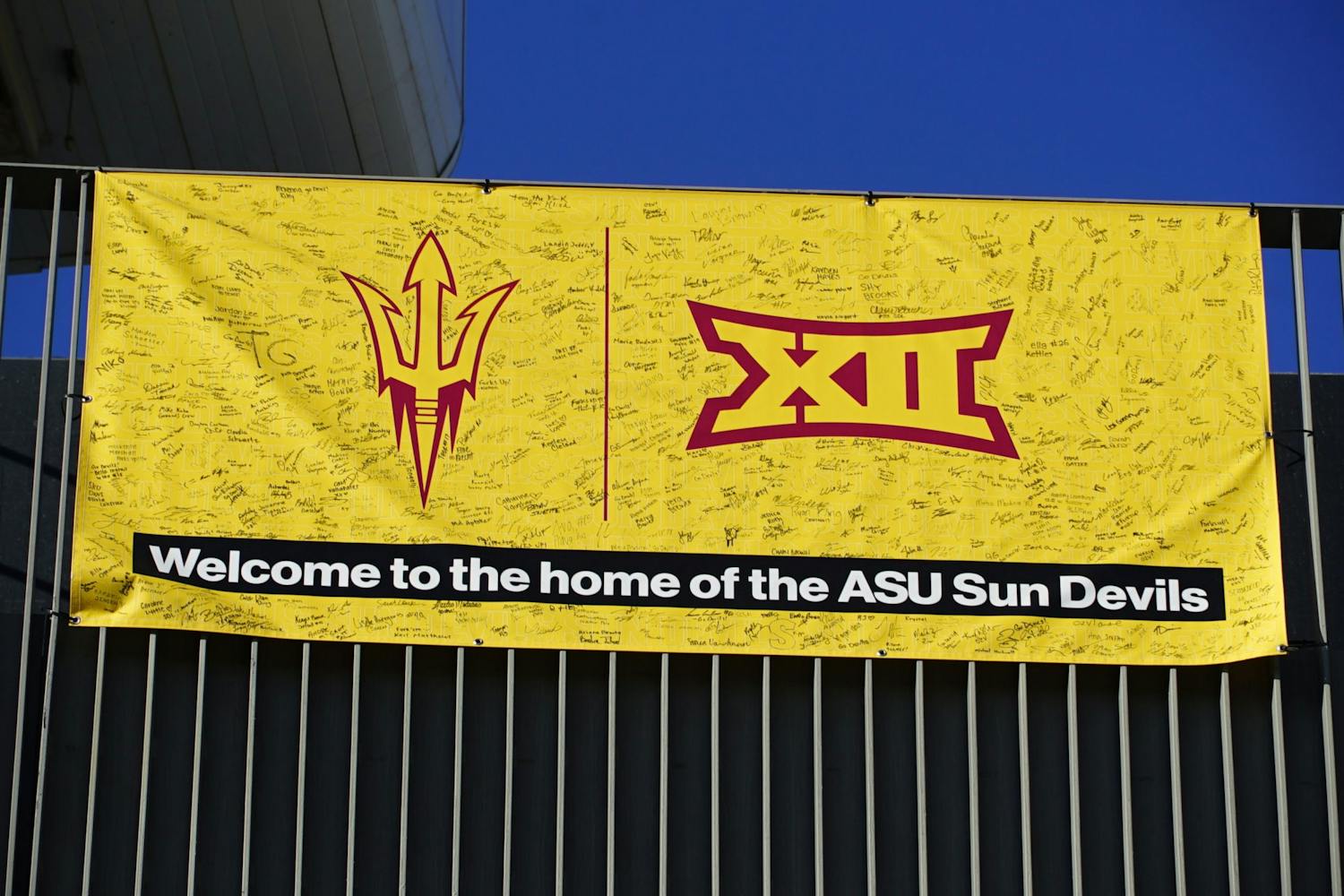A stern warning about holiday alcohol enforcement was delivered from police departments around the state on Tuesday at the State Capitol in Phoenix.
More than a dozen law enforcement agencies came together to announce the launch of a statewide drunk driving enforcement task force that will run this holiday season.
The Tempe Police Department, which will again ramp up DUI patrols around the city and Tempe campus after hosting a similar, highly publicized DUI campaign at the beginning of the school year, was among those present.
Tempe Police Chief Tom Ryff said with the city’s median age at 38 and many special events around the holidays, alcohol-related issues are a common problem in Tempe.
“It's a vibrant community, and there's a lot of alcohol,” he said. “That's been demonstrated by the past recent events. Several of those events involve some of our ASU students, so we've been working with ASU administration and ASU PD to really put forth a comprehensive approach to dealing with youth alcohol.”
For Tempe Police, the holiday DUI task force will not have to wait until the week of Christmas or New Year’s to see an increase in calls for service and alcohol-related issues.
Ryff stressed that Saturday’s Stanford vs. ASU football game already has the department planning ahead.
“For this weekend's game … I just held a meeting with ASU PD, and we are significantly bolstering our police presence and bringing in resources from surrounding agencies as well as Arizona's Department of Public Safety,” he said.
The planning will include saturation of Tempe by the East Valley DUI Task Force on Saturday night to assist with DUI and alcohol-related issues that Ryff said are likely to occur.
Along with the game and other holiday festivities, the department faces stiff challenges to keep everyone safe at a time when there will be more than a quarter of a million people out-and-about in the community, Ryff said.
“With the ASU (vs.) Stanford game, we're going to have a sell out crowd,” he said. “We have a major event with the Mill Avenue festivals at the same time, we're going to have up to 300,000 people in our community, and there's no excuse for not planning.”
The Safe and Sober DUI operation, which coincided with the beginning of the school year and received some national media attention, saw roughly 1,700 arrests in 11 nights of enforcement for Tempe Police, Ryff said.
The department is compiling a report due to be released in a few weeks with the official impact of Safe and Sober, but Ryff said the numbers appear promising.
“We have noticed a fairly significant decrease in calls for service and alcohol-related issues around the campus area,” he said. “We've noticed that decrease as a direct result of not only Safe and Sober, but as a result of some of our community outreach, also as well as Arizona State University PD and ASU officials assisting us.”
Maricopa County Attorney Bill Montgomery called driving impaired selfish and senseless, and urged people to use taxis, cell phones and other services to avoid the consequences of driving drunk.
“You will spend time in jail; you will spend hundreds if not thousands of dollars in fines and fees,” he said.
Maricopa County Sheriff Joe Arpaio also had a hard-nosed warning for those who drive drunk over the holidays.
“I will say, we have plenty of room in the tents,” he said. “So all the dedicated law enforcement officers, lock 'em up. I'm not going to tell you how to do your job, but I will say, we have room in jail.”
The holiday DUI task force is part of a grant given by the Governor’s Office of Highway Safety to participating departments to afford heavy enforcement over the holiday.
Statewide alcohol crimes and DUIs have increased dramatically since 2004.
Aggravated DUIs have grown nearly tenfold in that time, and the total number of DUI arrests have climbed from 5,255 in 2004, to 32,171 in 2012, according to the Governor’s Office of Highway Safety.
The increased enforcement in Tempe and surrounding the Tempe campus will run through New Year’s on scheduled nights, Ryff said, and any further Safe and Sober operations will be on a case-by-case basis.
“What my goal is, is to alter behavior (and) keep our community safe,” he said. “If calls for service go down and we're not seeing the problems of people getting hurt, then we known that we're being successful.”
Editor's note: A featured photo was removed from this story on June 13, 2022. The photo was not relevant to the content of the story.
Reach the reporter at mark.remillard@asu.edu or follow him on Twitter @markjremillard



